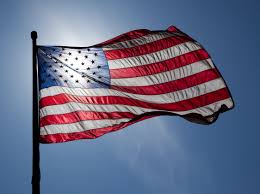By Megan Murphy
Editor-in-Chief
If you follow the news (or just scroll through your Facebook feed), you’ll have seen the phrase “freedom of speech” thrown about a lot recently, possibly in connection with UC Berkeley protests. Basically, back in February controversial conservative Milo Yiannopoulos was slated to speak at the school, but due to threats and protests that turned violent, the event was cancelled. Last month, a “Free Speech Week” headed by Yiannopoulos and the student group Berkeley Patriot was also cancelled due to a similar backlash, causing conservative pundits to denounce UC Berkeley as suppressing the right to free speech.
So, here’s the thing. From what I can see, a lot of people really do not understand what “freedom of speech” means. Especially in recent years, more and more people seem to think that they can say whatever they want and not have to face the repercussions.
The 1st Amendment states that “Congress shall make no law… abridging the freedom of speech.” The government is not allowed to curb your freedom of speech. Other people, however, can criticize you as much as they like and that’s perfectly okay! They have the freedom of speech, too. If you say something rude about your boss and he fires you, for example, your freedom of speech is not being violated.
Freedom of speech doesn’t mean freedom from accountability.
Another misconception I often see is people thinking that just because someone says something they don’t agree with or find offensive, they shouldn’t be allowed to say it. However, unless what a person says is a direct threat to other people, they are allowed to say that under the First Amendment. A critical thing to remember, again, though, is that you can speak out against speech you don’t agree with too.
Peaceable assembly also is guaranteed as a right thanks to the First Amendment, and that is another avenue to express your opinion against people, laws, etc. that you don’t agree with. However, going back to the original example, the Berkeley protests got out of hand when they were no longer peaceful. After that, when people were injured and property was damaged, that was an “unlawful assembly” which isn’t, obviously, protected.
The First Amendment, in my opinion, is one of the most important parts of American law. Some countries are not as lucky as the U.S. to have the ability to state our opinions freely without fear of government backlash. However, it’s also critical to remember that our peers have the right to dislike what we say or do and protest it peacefully while obeying the law.

Leave a Reply